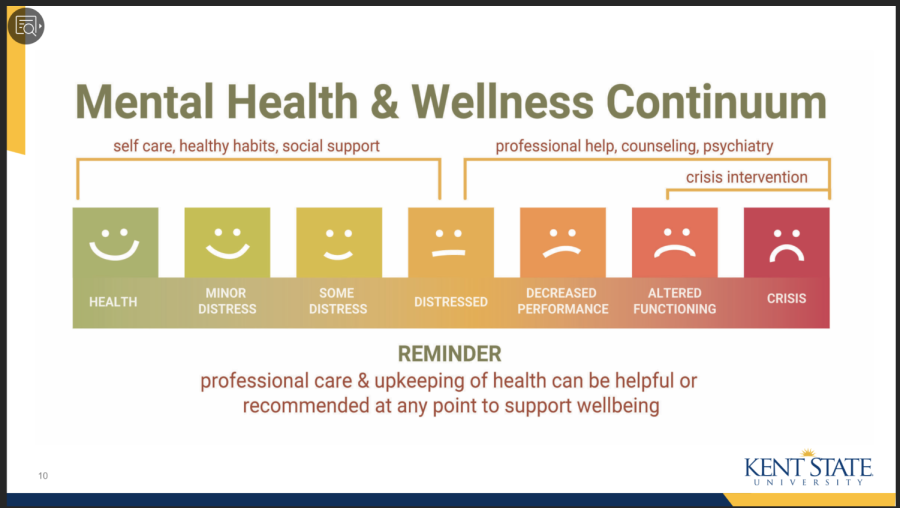A.I.D. training provides mental health awareness and education to students, faculty and staff
“Sam is very well-liked in your hall, with lots of friends, extracurriculars and a significant other who they spend a lot of time with. Over time, though, they start to become more withdrawn, quit most of their extracurriculars and seem gloomy. This is unlike them so you become concerned. You have completed A.I.D. training and you feel you have the confidence to talk to them. What do you do?”
This is one of the scenarios given at the end of A.I.D., also known as Awareness, Interaction and Direction training provided by the Center for Public Policy and Health and Division of Mental Health and Substance Use. As a part of the More Aware Initiative, funded by the U.S. Department of Health and Human Services, the interactive training session intends to educate trainees on how to recognize signs of someone in mental distress and how to support them.
“It starts a conversation,” said Deric Kenne, associate director of the Division of Mental Health and Substance Abuse. “It gets people thinking about mental health and individuals who might be in psychological distress.”
In addition to educating trainees on mental health, the session includes self-help resources, definitions of mental health terminology and the dos and don’ts of communicating with someone in mental distress.
“We also talk about some self care things, so there is a mix of professional resources as well as a list of things a person can do for themselves,” said Kim Laurene, assistant professor in the College of Public Health.
The training is one of five mental health awareness trainings that the Division of Mental Health and Substance Use hosts. It was originally developed to provide public school teachers in Medina County mental health awareness training.
“The approach is to try to have a menu of options for people so if you really want to get an in-depth training and you have six to eight hours, then you do the Mental Health First Aid training,” Kenne said. “If you want to learn, but don’t have that much time to commit, then you can do the A.I.D. training.”
The training lasts for an hour and keeps trainees engaged by asking thought-provoking questions and generating anonymous polls on the topics covered.
“It’s just my hope that more people have awareness and that we can reduce stigma so we can make the Kent State community more aware of mental health and accepting of mental illness,” said Cassie Shokles, a graduate research assistant in the College of Public Policy & Health.
A.I.D. training runs until April and a full list of the trainings offered including QPR, also known as Question, Persuade and Refer; V-A-R, also known as Validate, Appreciate and Refer and the self-paced Thrive Through It course are available on the Division of Mental Health and Substance Use website.
Cassidy Gladieux is the mental health reporter. Contact her at [email protected].



